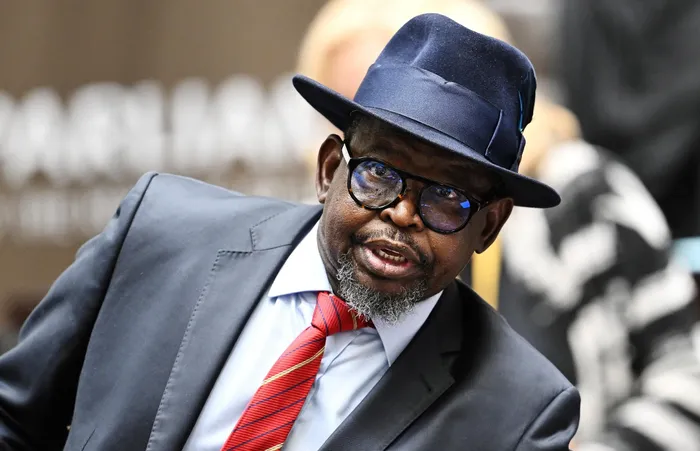South Africa braces for crucial Mid Term Budget as economists warn of growth downgrade
MTBPS

Finance Minister Enoch Godongwana will deliver the MTBPS in November.
Image: GCIS
South Africa’s fiscal outlook is once again under the spotlight as Finance Minister Enoch Godongwana prepares to deliver the Medium Term Budget Policy Statement (MTBPS) next month on 12 November.
The statement is expected to set the tone for the remainder of the fiscal year, providing updates on growth forecasts, inflation expectations and government spending priorities.
Frank Blackmore, Lead Economist at KPMG, said the upcoming statement would be a critical moment for assessing whether South Africa’s economic recovery is on track.
“The focus will be on revising economic growth and inflation forecasts. The growth was predicted at 1.4% for this year and expected to rise to 1.7% in 2027, but this will likely need to be downgraded,” Blackmore said.
According to Blackmore, any downgrade in growth projections will have a ripple effect on the country’s fiscal ratios.
“The impact will be that ratios in terms of GDP will increase considerably over this period,” he said.
This means that the government’s debt burden relative to the size of the economy could rise, putting additional strain on fiscal sustainability efforts.
The expected slowdown in growth also spells trouble for tax revenue.
“The lack of growth will also mean that your revenue forecasts will not meet expectations in certain areas. Therefore, next year’s budget will need to include plans to address this shortfall,” Blackmore said.
Economists expect that the minister may outline the government’s thinking on new measures to boost revenue or curb spending.
“We may see the introduction of new revenue and expenditure measures, and potential reforms to specific public service programs being announced in the upcoming Medium Term Budget Policy Statement,” Blackmore said.
However, he cautioned that the details of such measures would not be included in the November statement.
“We need to keep in mind that the details of the taxes and expenditure programs will not be provided in the medium term budget,” he explained.
“Those specifics will be outlined in next year’s national budget.”
The mid term budget typically provides a progress report on fiscal policy rather than a full overhaul of spending and taxation.
Blackmore said the minister was still likely to emphasise government’s commitment to discipline.
“Emphasis will still be on fiscal consolidation and how the budget is progressing in that respect,” he said.
“There will also be certain progress on infrastructure and jobs being the two important initiatives.”
In addition to fiscal performance, the government’s structural reform agenda will be a key area of interest.
“Most importantly, there will be a response to government’s Operation Vulindlela initiative and what progress is made thus far,” Blackmore said.
Operation Vulindlela, a collaboration between the Presidency and National Treasury, aims to accelerate reforms in critical sectors such as energy, logistics and water infrastructure.
“We can expect to get updates on the public sector reforms which are usually addressed alongside government debt and inflation targeting,” Blackmore added. These reforms are seen as essential to creating an environment conducive to private investment and long term economic stability.
As the statement approaches, economists and investors alike are hoping for clear signals about how government plans to balance its competing priorities of stimulating growth while maintaining fiscal prudence. South Africa continues to grapple with high unemployment, low business confidence and persistent power challenges, all of which weigh on economic activity.
Blackmore believes this year’s statement will need to reflect the urgency of the moment.
“I think there are significant changes that are needed in this year's Medium Term Budget Policy Statement, and those revisions will be provided,” he said. “We can also anticipate early insights into next year’s budget regarding both revenue and expenditure measures,” the KPMG economist added.
The Medium Term Budget Policy Statement is expected to serve as a critical bridge between February’s national budget and the next fiscal cycle.
For policymakers, it represents a chance to reassure markets of government’s commitment to reform and stability.
For South Africans, it offers a glimpse into how the state plans to navigate another challenging economic year.
As November draws closer, all eyes will be on the Treasury to see whether the minister can strike the delicate balance between fiscal restraint and the urgent need for growth.
BUSINESS REPORT